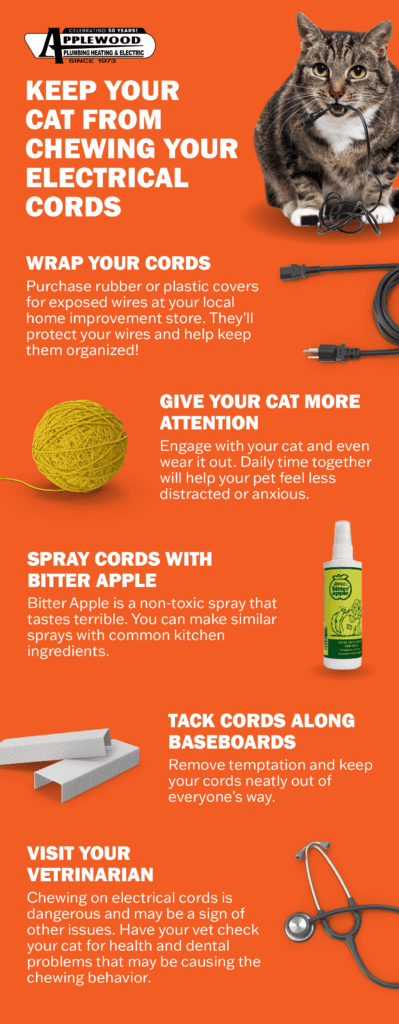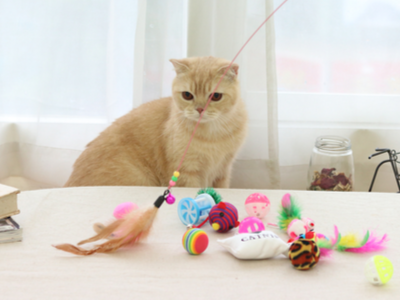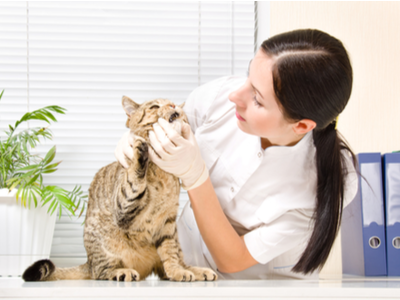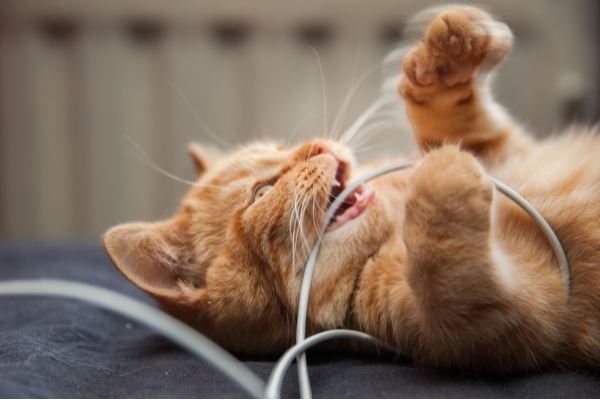September 10, 2025
How to Stop Cats From Chewing Cords

Curiosity killed the cat. It’s an old saying, but it still holds true. If your cat or kitten is chewing cords in your home, it’s only a matter of time until they get hurt. Luckily, our animal-loving electricians have some proven tips on how to practice electrical safety and stop cats from chewing on cords.
If you can protect wires from cats, you’ll keep your electrical system in good working condition and prevent visits from your friendly neighborhood electrician. But more importantly, you’ll keep your kitty safe from harm. A cat chewing on cords could be a sign of other issues. We’ll help you diagnose the motives behind your pet’s oral fixation and give you solutions to break the habit.
Why Is My Cat Chewing on Cords?
Cats chew on cords for a variety of reasons, from behavioral problems to dental issues to health afflictions. These are some of the most likely reasons your cat chews on your cords:
Curiosity
Cats, especially kittens, like the way it feels when they chew on a cord. They also have vivid imaginations; a cord hanging off the table may look like another animal’s tail, or it might simply be a tactile issue they can’t resist.
Boredom
House cats without a lot of external stimulation might see a dangling electrical cord as an exciting distraction. This might translate as a cat that chews on everything, not just electrical wires.
Dental issues
Teething kittens tend to chew on anything and everything—an electrical cord may just be what’s convenient. Additionally, a good percentage of older cats experience dental problems. Chewing helps alleviate their discomfort.
OCD
If your cat exhibits behaviors like overgrooming, tail chasing, and excessive licking, they may have an obsessive-compulsive disorder that compels them to chew.
Nutritional deficiency
Pica is the medical term for eating non-food items. Often, it’s the result of a health problem or lack of nutrition.
Stress
If your cat is going through a stressful period, chewing may help it relieve inner tension and anxiety.
How To Stop Cats from Chewing on Cords
Whatever the reason your cat is chewing on cords, it’s important to keep them safe. Here are six ways you can keep cats away from wires and avoid chewed-up cords:
1. Cover Exposed Wires
You can purchase rubber or plastic cord covers or wire sheathing at most stores that sell electrical and home repair supplies. Not only do covers create a barrier against chewing, but they’re also useful for organizing your cords and keeping them untangled. An electrician from Applewood can help you install cord covers.

2. Keep Your Cat Entertained
If your cat is bored, they’re more likely to cause mischief. Distract them by engaging their sensory needs: smell, taste, texture, and sound.
Replace their desire to chew on rubber cords by giving them something else to chew on, like rubber chew toys, rawhide, or even cardboard. Cat grass is another great alternative for heavy chewers. And rotate your cat’s toy options so they don’t get tired of the same items day in and day out.
3. Give Your Cat More Attention
Increase your daily interaction with your cat to wear them out mentally and physically. Interactive food toys that require your cat to actively hunt for treats are an excellent alternative for cats that chew on cords.
4. Spray Cords with Bitter Apple Spray
Cats have fewer taste buds than humans, but they detect sensations like salty, sour, and bitter. Cats hate bitter tastes, and because their heightened sense of smell can detect it, bitter or spicy deterrents are effective. Apply a bit of store-bought bitter spray, or make your own, to keep your cat from chewing on electrical cords.
5. Remove Access to Cords
Rearrange furniture to cover up cords or hide them behind electrical tape. By removing the temptation of open dangling cords and limiting access, you might reduce your cat’s urge to chew.
6. Make Cords Unappealing
Some cat owners find that their cats dislike the texture of aluminum foil or double-sided tape. Try wrapping your wires in these common household items to make the chewing experience less pleasant for your kitty.
7. Take Your Cat to the Vet for a Checkup

Because chewing on cords can be a sign of a health or dental problem, it’s important to take your cat in for a checkup. A vet will be able to assess your cat’s teeth, health, and diet to ensure they’re getting the right nutrition and that they’re healthy.
If you notice signs of injury from electrical cords, like burn marks around your cat’s mouth or excessive drooling, schedule a visit right away. Electrical shock can lead to significant issues like heart and lung damage or breathing trouble.
Electrical Repair for Cats Chewing Cables

Damaged or exposed wires and cords can easily become a hazard in your home. If your cat keeps chewing on wires, try the steps above to remedy the problem.
Applewood is proud to be your go-to electrical expert throughout the Denver/Boulder area. If you need help covering cords, replacing damaged wiring, or addressing any other electrical issues, call us today. We’ll replace or redirect dangerous wires to keep your home safe for two- and four-legged family members alike!


